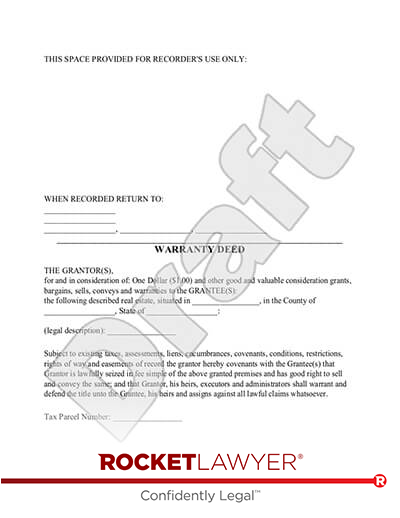The Vesting Deed itself does not necessarily transfer all of those rights to the buyer, though. It serves as a guarantee from the seller to the buyer that he does have those rights, and he's willing to transfer them. If it turns out that he is wrong and you purchased a property that had a $50,000 lien on it, then the seller must reimburse you for breach of contract. In addition to making payment for the lien, most states also require that the seller pay the legal fees you incur.
Each state has its own precise language that must be included for the vesting to take effect. Most of the time, it involves some variation on the phrase "absolute right of title and ownership rights," but make sure that you know what your state requires. Failure to use these precise terms can sometimes keep the vesting deed from being enforceable. You can generally find out the particular term by talking to a real estate agent or even the clerk's office.
For further protection, you'll want to make sure that you file the proper paperwork with the courthouse where the property is located. This way you put all other individuals on notice that you now have the full rights to the property. In most states, this filing is an essential part of the process known as "perfection." Failure to perfect can result in a partial or total loss of vesting rights, among others.
This article contains general legal information and does not contain legal advice. Rocket Lawyer is not a law firm or a substitute for an attorney or law firm. The law is complex and changes often. For legal advice, please ask a lawyer.
